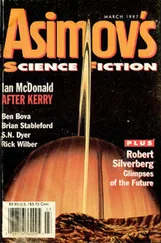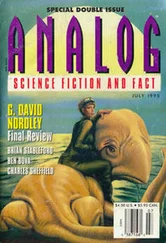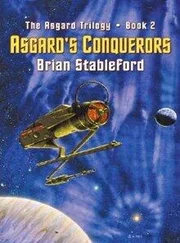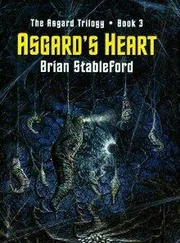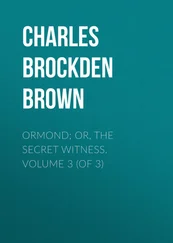I knew as soon as I’d said it that he wouldn’t be at all impressed. I could even think of several arguments he might use in response. After all, you could argue that what we are and how we think is very largely determined by what we eat. Maybe I could see both sides of the argument, because I was an unrepentant omnivore. But he didn’t want to continue the discussion at that level. To him, it was perfectly obvious that the opinions of any lousy bunch of leaf-eaters didn’t matter a damn, and his kind had retained that conviction even while they coexisted with dozens of herbivorous species in the galactic community.
No wonder, I thought, they get on so well with the Spirellans. No wonder everyone else hates their guts. No wonder they’ve established their own delinquent subculture in Skychain City.
I recalled that Sleaths were vegetarian. It no longer seemed surprising that they’d murder a man just to put me in the frame. To Guur, it wasn’t really murder, because a Sleath wasn’t worth an atom of moral consideration. I wondered what he thought of me.
“I suppose you think the ones who are watching us are good predators,” I said. “That they put us in this cage to see how good we are.”
Guur turned away, looking first at Khalekhan’s dead body, then at the luscious flowers of the forest.
“No,” he said, sadly. “They are leaf-eaters. I would like to think otherwise, but everything tells me it is so.”
“Everything?”
“Armour,” he said. “Armour is the investment of leaf-eaters. The predator is quick and sleek—his weapons are offensive. None but they who feed on seed and branch would armour a world as this one is armoured, and hide themselves as these ones hide. These are not hunters; they are those who would grow fat. Like the Tetrax, they would make their food in machines, dead and bland, vile and unclean. The universe is full of herds, who do not like the ones who truly live. But the law bids predators be prudent. The predator is clever, the predator deceives. The ethics of the herd preserve the herd, but only until the day when the hunter comes. This herd already knows what we are, and what we can do—it does not fear us, but it fears what we are. It fears the hunters who are still to come.”
“You could lay down your arms,” I suggested, “and try to soothe those fears a little.”
I knew it was useless. A real leaf-eater suggestion. He didn’t care what the watchers would think of him. He was a predator.
“The predator is clever,” I repeated subvocally. “The predator deceives. Like hell.”
“The star-captain’s a predator too,” I told him. “She just got back from wiping out an entire world. I couldn’t say for sure, but I have a sneaking suspicion that the Salamandrans were meat-eaters too. I may look like a leaf-eater, but the Star Force are right at the top of the food chain—take my word for it.”
He was still staring into my eyes, though his pupils had shrunk now to thin vertical slits, so that his eyes were a dark orange from rim to rim, like angry flames.
“Your kind is confused,” he told me. “You feel the strength of the true law, and yet you capitulate with the ethics of the herd. You seek a balance that cannot exist, and it weakens you. Your kind does not know whether it is a tribe or a herd, and I can use that. When the star-captain sees that I have you, she will hesitate. She will try to bargain for your life, and she will lose her own life in consequence of that hesitation.”
I thought he was probably wrong, but I didn’t know whether that was anything to be glad about. In fact, I didn’t know how to react at all, and in that uncertainty I suppose his point was proved. I was confused all right.
I salved my conscience by wondering whether that confusion was really such a bad thing. I remembered the Tetron theory of history that 69-Aquila had described to me, and wondered how it accommodated the kind of interspecific psychological differences that meant so much to Amara Guur. For all that they were leaf-eaters by nature, the Tetrax seemed predatory enough in their sanctioning of slavery and their notions of obligation. Behind their herdlike ethics there was real power and real strength.
Omnivores of the universe unite! I thought. Let’s show the hunters just how double-faced we can be!
“Someone moving,” hissed Jacinthe Siani, close to Amara Guur’s pointed ear.
The vormyran turned, quickly. He grabbed me by the arm, and pulled me away from the wall. He pushed me into a position between himself and the flowery forest.
“You will be my shield,” he murmured. “Keep perfectly still, and be silent. While you are useful, I will let you live. The prudent predator never kills without purpose.”
This ambiguous promise did not seem to me to be at all encouraging.
“Guur!” called a female voice from the jungle. “I want to talk!”
“I agree entirely,” Amara Guur called back. “We are very sorry about the unfortunate accident, which occurred when my foolish friend was overtaken by panic. We must all work together now. Please come forward.”
I glanced from side to side. The vormyran called Kaat was to one side of me, Jacinthe Siani to the other. Neither Heleb nor the other vormyran was visible now—they had each moved surreptitiously into the thick undergrowth.
If I had been a braver man, I dare say that I would have shouted out to tell the star-captain that she was being invited into the jaws of a trap. As it was, I simply could not find a voice.
I watched Susarma Lear—apparently unarmed—step into a small open space between two of the great coloured flowers, and my heart sank as I wondered whether this curious garden might rather be a kind of arena, where the emperors of Asgard staged their circuses. It was pretty obvious now just who the lions were—and I couldn’t help fearing that the poor benighted Christians might be unable to put up any kind of resistance at all.
“We deeply regret the death of your soldier,” said Amara Guur smoothly. “It was an unfortunate error, caused by the shock of discovering ourselves in this astonishing situation.”
“I can understand that,” replied Susarma Lear coolly. “We don’t want to fight your people. We came to kill the android, and that’s what we want to do. I gather that you don’t have any reason to like him either—that you’d be just as happy to see him dead as we would.”
I felt Guur relax slightly, though he kept the needier pressed into my spine, just below the neck.
“That is correct,” he said. “The giant… the android… killed a number of valued men. We certainly would not wish to interfere with your mission.”
“Once the android is dead,” the star-captain went on, “our next priority is getting out of here. There’s no point in wasting our energies trying to kill one another. We need to work together.”
“I agree,” said Guur.
“Then I suggest that you put down your guns, so that we can talk in a civilized manner.”
Guur relaxed a little more, and I felt the pressure on my vertebra relent. But he didn’t drop the gun. Jacinthe Siani let the barrel of the crash-gun droop, but the vormyr to the other side of me didn’t move a muscle.
“Nothing would give me greater pleasure,” lied Amara Guur. “But you will appreciate my desire to be careful. We can see you, empty-handed, but we cannot see your companions.”
I found my voice at last. “He’s lying,” I said to the star-captain. “If I were you, I’d get the hell out of here.”
I felt the gun boring into my back again, and Guur’s hard-nailed fingers bit into my arm where he was still holding me.
Читать дальше

